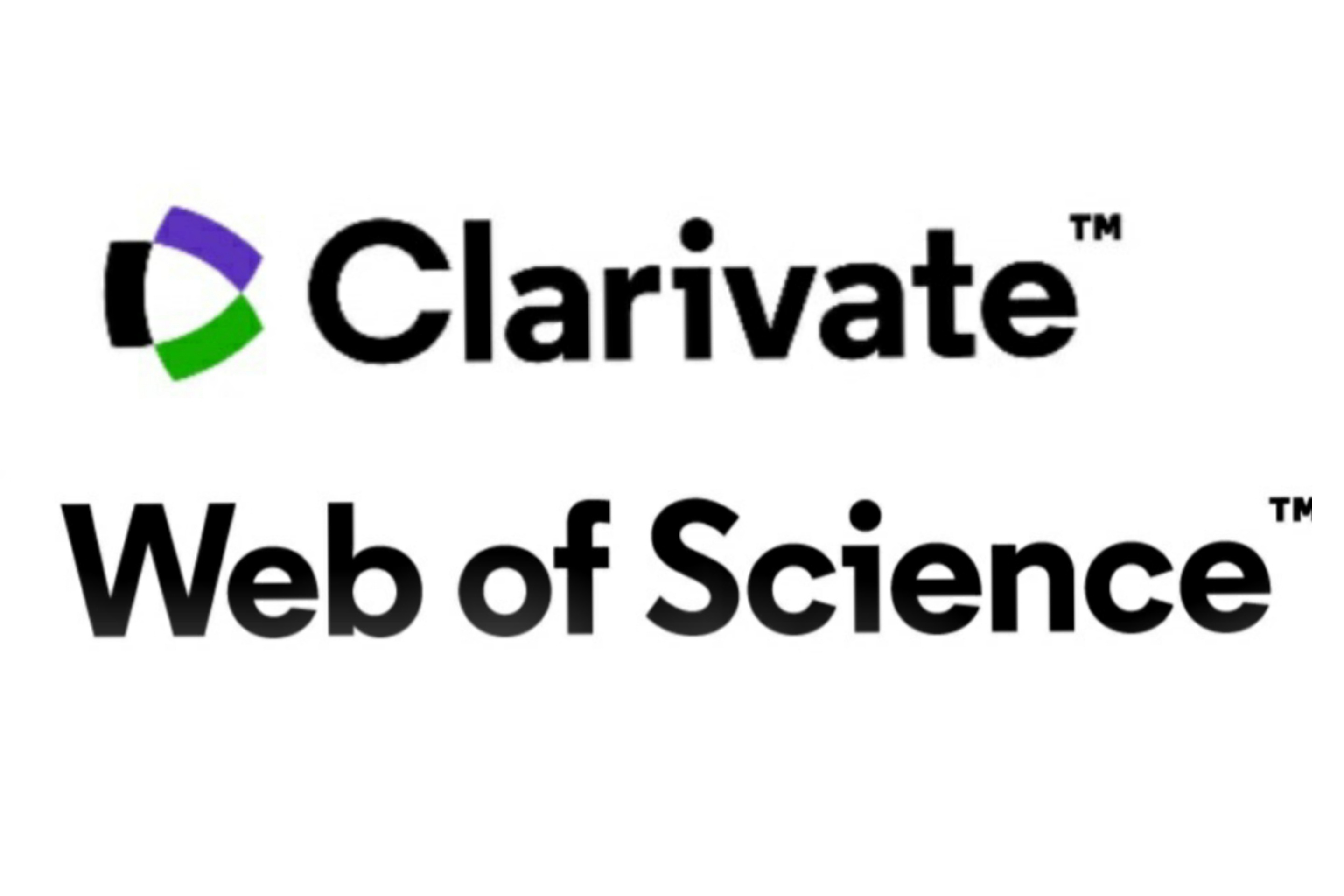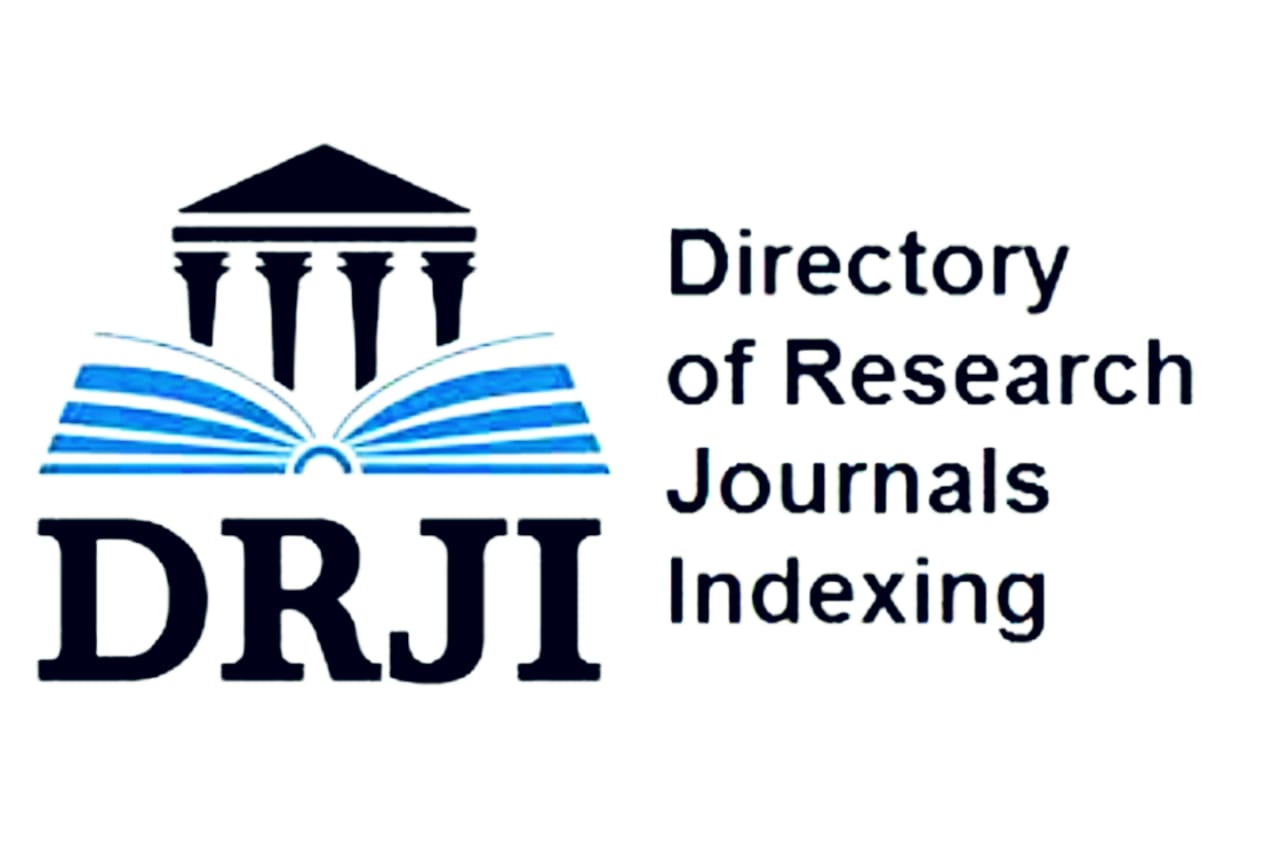The study of association between candidate gene polymorphisms and age-dependent diseases in population from Kazakhstan
DOI:
https://doi.org/10.26577/2218-7979-2014-7-2-31-36Keywords:
age-dependent disease, genetic susceptibility, genetic polymorphisms, Kazakhstan populationAbstract
Here, we show that several aging related genes may serve as the genetic risk factors for cervical, esophagus and colorectal cancers. We examined the genes involved in the processes of xenobiotics detoxification (GSTM1 and GSTT1), DNA repair (XRCC1, XRCC3, hMLH1), cell cycle regulation and apoptosis (CCND1, TP53, DCC). The study results will lead to development of screening for detection of individuals susceptible to esophageal, cervical and colorectal cancers. Introduction of the screening programs will allow the early and effective preventive measures that will reduce cancer incidence and mortality in Kazakhstan.References
1. Djansugurova L.B., Perfilyeva A.V., Zhunusova G.S., Djantaeva K.B., Iksan O.A., Khussainova E.M. The determination of genetic markers of
age-related cancer pathologies in populations from Кazakhstan // Front Genet. – 2013. – doi:10.3389/fgene.2013.00070.
2. Djansugurova L., Zhunussova G., Khussainova E. et al. Association of DCC, MLH1, GSTT1, GSTM1 and TP53 gene polymorphisms with colorectal cancer in Kazakhstan // Tumor Bilol. – 2014. – DOI10.1007/s13277-014-2641-2
3. Tan W., Song N., Wang G-Q., Liu Q., Tang H-J., Kadlubar F. F., Lin, D-X. Impact of Genetic Polymorphisms in Cytochrome P450 2E1 and Glutathione S-Transferases M1, T1, and P1 on Susceptibility to Esophageal Cancer among High-Risk Individuals in China1 // Cancer Epidemiol. Biomarkers Prev. – 2009. – 551.
4. Gao C. M., Takezaki T., Wu J. Z., Li Z. Y., Liu Y.T., Li S. P. Glutathione-S-transferases M1 (GSTM1) and GSTT1 genotype, smoking, consumption
of alcohol and tea and risk of esophageal and stomach cancers: a case-control study of a highincidence area in Jiangsu Province, China // Cancer Lett. 2002. – Vol. 188. – P. 95-102.
5. Lu X. M., Yang T., Xu S. Y. Wen H., Wang X., Ren Z. H., Zhang Y., Wang W. Glutathione-Stransferase Ml polymorphisms on the susceptibility to esophageal cancer among three Chinese minorities:
Kazakh, Tajik and Uygur // World J. Gastroenterology. – 2006. – Vol. 12. – P.7758-7761.
6. Liu Y., Xu L. Z. Meta-analysis of association between GSTM1 gene polymorphism and cervical cancer // Asian Pac. J. Trop. Med.- 2012. – 5(6). – P.480-484.
7. Ketterer B., Taylor J., Meyer D., Pemble S., Coles B., ChuLin X., Spencer S. Structure and functions of glutathione S-transferases // CRC Press. Boca. Raton. Florida. – 2007. – P. 15-27.
8. Gao L-B., Pan X-M., Li L-J., Liang W-B., Bai P., Rao L.i, Su X-W., Wang T., Zhou B., Wei Y-G., Zhang L. Null genotypes of GSTM1 and GSTT1 contribute to risk of cervical neoplasia: an evidence-based meta-analysis // PLoS ONE.- 2011. – 6(5). – P. 1-7.
9. Zhang Zh-Y., Jin X-Y., Wu R., Wu L-N., Xing R., Yang Sh-J., Xie Y. Meta-analysis of the Association between GSTM1 and GSTT1 gene polymorphisms and cervical cancer // Asian Pacific J. Cancer Prev.- 2012. – Vol. 13. – P. 815-819.
10. Rajagopal R., Deakin M., Fawole A.S., Elder J.B., Elder J., Smith V., Strange R.C., Fryer A.A. Glutathione S-transferase T1 polymorphisms are associated with outcome in colorectal cancer // Carcinogenesis. – 2005. – Vol. 26. – P. 2157-2163.
11. Csejtei A., Tibold A., Varga Z., Koltai K., Ember A., Orsos Z., Feher G., Horvath O.P., Ember I., Kiss I. GSTM, GSTT and p53 Polymorphisms as Modifiers of Clinical Outcome in Colorectal Cancer // Anticancer Res. – 2008. – Vol. 28. – P.1917-1922.
12. Katoh T., Nagata N., Kuroda Y., Itoh H., Kawahara A., Kuroki N., Ookuma R., Bell D. Glutathione S-transferase Ml (GSTM1) and Tl (GSTT1) genetic polymorphism and susceptibility to gastric and colorectal adenocarcinoma // Carcinogenesis. – 1996. – Vol. 17. – P. 1855-1859.
13. Moore L.E., Huang W.Y., Chatterjee N., Gunter M., Chanock S., Yeager M., Welch B., Pinsky P., Weissfeld J., Hayes R.B. GSTM1, GSTT1,
and GSTP1 Polymorphisms and Risk of Advanced Colorectal Adenom // Cancer Epidemiol Biomarkers Prev.- 2005. – Vol. 14. – P. 1823-1827.
14. Huang K., Sandler R.S., Millikan R.C., Schroeder J.C., North K.E., Hu J. GSTM1 and GSTT1 polymorphisms, cigarette smoking, and risk
of colon cancer: a population-based case-control study in North Carolina (United States) // Cancer Causes Control. – 2006. - Vol. 17.- P. 385-394.
15. Li Y., Liu F., Tan Sh-Q., Wang Y., Li Sh-W. X-ray repair cross-complementing group 1 (XRCC1) genetic polymorphisms and cervical cancer risk: a huge systematic review and meta-analysis // PLoS ONE. – 7(9). – 2012. – P. 1-11.
16. Yu H. P., Zhang X. Y., Wang X. L. Shi L. Y., Li Y. Y., Li. F., Su Y. H., Wang Y. J., Lu B., Sun X., Lu W. H., Xu S. Q., DNA repair gene XRCC1 polymorphisms, smoking, and esophageal cancer risk // Cancer Detect. Prev. – 2004. – 28. – P. 194-199.
17. Chen B., Cao L., Yang P., Zhou Y., Wu X.. Cyclin D1 (CCND1) G870A gene polymorphism is an ethnicity-dependent risk factor for digestive tract cancers: a meta-analysis comprising 20,271 subjects // Cancer Epidemiol. – 2012. – 36. – P. 106-115.
18. Dumont P., Leu J. I., Della Pietra, A. C. 3rd, George D. L., Murphy M. The codon 72 polymorphic variants of TP53 have markedly different
apoptotic potential // Nat. Genet. – 2003. - 33 (3). – P. 357-365.
19. Sullivan A., Syed N., Gasco M. Bergamaschi D., Trigiante G., Attard M., Hiller L., Farrell P. J., Smith P., Lu X., Crook T. Polymorphism in wildtype TP53 modulates response to chemotherapy in vitro and in vivo // Oncogene. – 2004. – 23(19). – P. 3328-3337.
20. Storey A., Thomas M., Kalita A., Harwood C., Gardiol D., Mantovani F., Breuer J., Leigh I. M., Matlashewski G., Banks L. Role of a p53 polymorphism in the development of human papillomavirus-
associated cancer // Nature. – 1998. – Vol. 393. – P. 229–234.
21. Nishikawa A., Fujimoto T., Akutagawa N., Iwasaki M., Takeuchi M., Fujinaga K. p53 polymorphism (codon-72) has no correlation with the
development and the clinical features of cervical cancer // Int. J. Gynecol. Cancer .- 2000. – Vol. 10. – P. 402–407.
22. Settheetham-Ishida W., Yuenyao P., Natphopsuk S., Settheetham D., Ishida T. Genetic Risk of DNA Repair Gene Polymorphisms (XRCC1 and
XRCC3) for High Risk Human Papillomavirus Negative Cervical Cancer in Northeast Thailand // Asian Pacific Journal of Cancer Prevention. – 2011.
– Vol. 12. – P. 963-966.
23. Wu M. T., Liu C. L., Ho C. K., Wu T. N. Genetic polymorphism of p53 and XRCC1 in cervical intraepithelial neoplasm in Taiwanese women //
J. Formos Med. Assoc. – 2004. – 103. – P. 337–343.
24. De Araujo S. P. S., Villa L. L. Genetic susceptibility to infection with human papillomavirus and development of cervical cancer in women in Brazil //. Mutat. Res. – 2003.- Vol. 544. –P. 375–383.
25. Ojeda J. M., Ampuero S., Rojas P., Prado R., Allende J. E., Barton S. A. p53 codon 72 polymorphism and risk of cervical cancer // Biol. Res. –
2003. – Vol. 36. – P. 279–283.
26. Madeleine M. M., Shera K., Schwart S. M.,Daling J. R., Galloway D. A., Wipf G. C., Carter J. J., McKnight B., McDougall, J. K. The p53 Arg-
72Pro Polymorphism, Human Papillomavirus, and Invasive Squamous Cell Cervical Cancer // Cancer Epidemiol. Biomarkers Prev. – 2000. – Vol. 9. – P. 118-225.
27. Habbous S., Pang V., Eng L., Mackay H., Amir E., Liu G. Association of p53 Arg72Pro polymorphism and HPV status with the initiation, progression, and development of cervical cancer (CC): A meta-analysis // J. Clin. Oncol. – 2012. – Vol. 30.
– P.1597.
28. Cescon D. W., Bradbury P. A., Asomaning K., Hopkins J., Zhai R., Zhou W., Wang Z., Kulke M., Su L., Ma C., Xu W., Marshall A. L., Heist R. S., Wain J. C., Lynch T. J. Jr., Christiani D. C., Liu G. p53 Arg72Pro and MDM2 T309G polymorphisms, histology, and esophageal cancer prognosis // Clin. Cancer Res. – 2009. – Vol. 15. – P. 3103-3109.
29. Ma J., Zhang J., Ning T., Chen Z., Xu C. Association of genetic polymorphisms in MDM2, PTEN and P53 with risk of esophageal squamous cell carcinoma // J. Hum. Genet. – 2012. -57(4). – P. 261-264.
30. Naccarati A., Polakova V., Pardini B., Vodickova L., Hemminki K., Kumar R., Vodicka P. Mutations and polymorphisms in TP53 gene – an overview on the role in colorectal cancer // Mutagenesis.
– 2012. – Vol. 27. – P.211-218.
31. Francisco G., Menezes P. R., Eluf-Neto J., Chammas R. Arg72Pro TP53 polymorphism and cancer susceptibility: a comprehensive meta-analysis of 302 case-control studies // Int. J. Cancer. -2010. – Vol.129. – P. 920-930.
32. Pan X.M., Yang W.Z., Xu G., Bai P., Qin H.J., Zhang L.S., Zhai X.D., Tang M., Deng W., Zhang L., Gao L.B. The association between MLH1-93 G>A polymorphism of DNA mismatch repair and cancer susceptibility: a meta-analysis // Mutagenesis. – 2011. – Vol. 26. – P. 667-673.
33. Perera S., Mrkonjic M., Rawson J. B., Bapat B. Functional effects of the MLH1 −93G>A polymorphism on MLH1/EPM2AIP1 promoter activity
// Oncol Rep. – 2011.- Vol. 25. – P. 809-815.
34. Raptis S., Mrkonjic M., Green R.C., Pethe V.V., Monga N., Chan Y.M., Daftary D., Dicks E., Younghusband B.H., Parfrey P.S., Gallinger S.S.,
McLaughlin J.R., Knight J.A., Bapat B. MLH1-93G>A promoter polymorphism and the risk of microsatellite-unstable colorectal cancer // J Natl Cancer Inst. – 2007.- Vol. 99. –P. 463-474.
35. Allan J.M., Shorto J., Adlard J., Bury J., Coggins R., George R., Katory M., Quirke P., Richman S., Scott D., Scott K., Seymour M. Travis L.B., Worrillow L.J., Bishop D.T., Cox A., MLH1 -93G>A promoter polymorphism and risk of mismatch repair deficient colorectal cancer // Int J Cancer. 2008. – Vol. 123. – P. 2456-2459.
36. Khan N.P., Pandith A.A., Hussain M.U., Yousuf A., Khan M.S., Siddiqi M.A., Wani K.A., Mudassar S., Loss of heterozygosity (LOH) of deleted
in colorectal cancer (DCC) gene and predisposition to colorectal cancer: Significant association in colorectal cancer patients of Kashmir // J Cancer Res Expt Oncol. – 2011. – Vol. 3. – P. 88-94.
37. Malik M.A., Gupta A., Zargar S.A., Mittal B. Role of genetic variants of deleted in colorectal carcinoma (DCC) polymorphisms and esophageal
and gastric cancers risk in Kashmir Valley and meta-analysis // Tumor Biol. – 2013. – Vol. 34. – P. 3049-3057.
age-related cancer pathologies in populations from Кazakhstan // Front Genet. – 2013. – doi:10.3389/fgene.2013.00070.
2. Djansugurova L., Zhunussova G., Khussainova E. et al. Association of DCC, MLH1, GSTT1, GSTM1 and TP53 gene polymorphisms with colorectal cancer in Kazakhstan // Tumor Bilol. – 2014. – DOI10.1007/s13277-014-2641-2
3. Tan W., Song N., Wang G-Q., Liu Q., Tang H-J., Kadlubar F. F., Lin, D-X. Impact of Genetic Polymorphisms in Cytochrome P450 2E1 and Glutathione S-Transferases M1, T1, and P1 on Susceptibility to Esophageal Cancer among High-Risk Individuals in China1 // Cancer Epidemiol. Biomarkers Prev. – 2009. – 551.
4. Gao C. M., Takezaki T., Wu J. Z., Li Z. Y., Liu Y.T., Li S. P. Glutathione-S-transferases M1 (GSTM1) and GSTT1 genotype, smoking, consumption
of alcohol and tea and risk of esophageal and stomach cancers: a case-control study of a highincidence area in Jiangsu Province, China // Cancer Lett. 2002. – Vol. 188. – P. 95-102.
5. Lu X. M., Yang T., Xu S. Y. Wen H., Wang X., Ren Z. H., Zhang Y., Wang W. Glutathione-Stransferase Ml polymorphisms on the susceptibility to esophageal cancer among three Chinese minorities:
Kazakh, Tajik and Uygur // World J. Gastroenterology. – 2006. – Vol. 12. – P.7758-7761.
6. Liu Y., Xu L. Z. Meta-analysis of association between GSTM1 gene polymorphism and cervical cancer // Asian Pac. J. Trop. Med.- 2012. – 5(6). – P.480-484.
7. Ketterer B., Taylor J., Meyer D., Pemble S., Coles B., ChuLin X., Spencer S. Structure and functions of glutathione S-transferases // CRC Press. Boca. Raton. Florida. – 2007. – P. 15-27.
8. Gao L-B., Pan X-M., Li L-J., Liang W-B., Bai P., Rao L.i, Su X-W., Wang T., Zhou B., Wei Y-G., Zhang L. Null genotypes of GSTM1 and GSTT1 contribute to risk of cervical neoplasia: an evidence-based meta-analysis // PLoS ONE.- 2011. – 6(5). – P. 1-7.
9. Zhang Zh-Y., Jin X-Y., Wu R., Wu L-N., Xing R., Yang Sh-J., Xie Y. Meta-analysis of the Association between GSTM1 and GSTT1 gene polymorphisms and cervical cancer // Asian Pacific J. Cancer Prev.- 2012. – Vol. 13. – P. 815-819.
10. Rajagopal R., Deakin M., Fawole A.S., Elder J.B., Elder J., Smith V., Strange R.C., Fryer A.A. Glutathione S-transferase T1 polymorphisms are associated with outcome in colorectal cancer // Carcinogenesis. – 2005. – Vol. 26. – P. 2157-2163.
11. Csejtei A., Tibold A., Varga Z., Koltai K., Ember A., Orsos Z., Feher G., Horvath O.P., Ember I., Kiss I. GSTM, GSTT and p53 Polymorphisms as Modifiers of Clinical Outcome in Colorectal Cancer // Anticancer Res. – 2008. – Vol. 28. – P.1917-1922.
12. Katoh T., Nagata N., Kuroda Y., Itoh H., Kawahara A., Kuroki N., Ookuma R., Bell D. Glutathione S-transferase Ml (GSTM1) and Tl (GSTT1) genetic polymorphism and susceptibility to gastric and colorectal adenocarcinoma // Carcinogenesis. – 1996. – Vol. 17. – P. 1855-1859.
13. Moore L.E., Huang W.Y., Chatterjee N., Gunter M., Chanock S., Yeager M., Welch B., Pinsky P., Weissfeld J., Hayes R.B. GSTM1, GSTT1,
and GSTP1 Polymorphisms and Risk of Advanced Colorectal Adenom // Cancer Epidemiol Biomarkers Prev.- 2005. – Vol. 14. – P. 1823-1827.
14. Huang K., Sandler R.S., Millikan R.C., Schroeder J.C., North K.E., Hu J. GSTM1 and GSTT1 polymorphisms, cigarette smoking, and risk
of colon cancer: a population-based case-control study in North Carolina (United States) // Cancer Causes Control. – 2006. - Vol. 17.- P. 385-394.
15. Li Y., Liu F., Tan Sh-Q., Wang Y., Li Sh-W. X-ray repair cross-complementing group 1 (XRCC1) genetic polymorphisms and cervical cancer risk: a huge systematic review and meta-analysis // PLoS ONE. – 7(9). – 2012. – P. 1-11.
16. Yu H. P., Zhang X. Y., Wang X. L. Shi L. Y., Li Y. Y., Li. F., Su Y. H., Wang Y. J., Lu B., Sun X., Lu W. H., Xu S. Q., DNA repair gene XRCC1 polymorphisms, smoking, and esophageal cancer risk // Cancer Detect. Prev. – 2004. – 28. – P. 194-199.
17. Chen B., Cao L., Yang P., Zhou Y., Wu X.. Cyclin D1 (CCND1) G870A gene polymorphism is an ethnicity-dependent risk factor for digestive tract cancers: a meta-analysis comprising 20,271 subjects // Cancer Epidemiol. – 2012. – 36. – P. 106-115.
18. Dumont P., Leu J. I., Della Pietra, A. C. 3rd, George D. L., Murphy M. The codon 72 polymorphic variants of TP53 have markedly different
apoptotic potential // Nat. Genet. – 2003. - 33 (3). – P. 357-365.
19. Sullivan A., Syed N., Gasco M. Bergamaschi D., Trigiante G., Attard M., Hiller L., Farrell P. J., Smith P., Lu X., Crook T. Polymorphism in wildtype TP53 modulates response to chemotherapy in vitro and in vivo // Oncogene. – 2004. – 23(19). – P. 3328-3337.
20. Storey A., Thomas M., Kalita A., Harwood C., Gardiol D., Mantovani F., Breuer J., Leigh I. M., Matlashewski G., Banks L. Role of a p53 polymorphism in the development of human papillomavirus-
associated cancer // Nature. – 1998. – Vol. 393. – P. 229–234.
21. Nishikawa A., Fujimoto T., Akutagawa N., Iwasaki M., Takeuchi M., Fujinaga K. p53 polymorphism (codon-72) has no correlation with the
development and the clinical features of cervical cancer // Int. J. Gynecol. Cancer .- 2000. – Vol. 10. – P. 402–407.
22. Settheetham-Ishida W., Yuenyao P., Natphopsuk S., Settheetham D., Ishida T. Genetic Risk of DNA Repair Gene Polymorphisms (XRCC1 and
XRCC3) for High Risk Human Papillomavirus Negative Cervical Cancer in Northeast Thailand // Asian Pacific Journal of Cancer Prevention. – 2011.
– Vol. 12. – P. 963-966.
23. Wu M. T., Liu C. L., Ho C. K., Wu T. N. Genetic polymorphism of p53 and XRCC1 in cervical intraepithelial neoplasm in Taiwanese women //
J. Formos Med. Assoc. – 2004. – 103. – P. 337–343.
24. De Araujo S. P. S., Villa L. L. Genetic susceptibility to infection with human papillomavirus and development of cervical cancer in women in Brazil //. Mutat. Res. – 2003.- Vol. 544. –P. 375–383.
25. Ojeda J. M., Ampuero S., Rojas P., Prado R., Allende J. E., Barton S. A. p53 codon 72 polymorphism and risk of cervical cancer // Biol. Res. –
2003. – Vol. 36. – P. 279–283.
26. Madeleine M. M., Shera K., Schwart S. M.,Daling J. R., Galloway D. A., Wipf G. C., Carter J. J., McKnight B., McDougall, J. K. The p53 Arg-
72Pro Polymorphism, Human Papillomavirus, and Invasive Squamous Cell Cervical Cancer // Cancer Epidemiol. Biomarkers Prev. – 2000. – Vol. 9. – P. 118-225.
27. Habbous S., Pang V., Eng L., Mackay H., Amir E., Liu G. Association of p53 Arg72Pro polymorphism and HPV status with the initiation, progression, and development of cervical cancer (CC): A meta-analysis // J. Clin. Oncol. – 2012. – Vol. 30.
– P.1597.
28. Cescon D. W., Bradbury P. A., Asomaning K., Hopkins J., Zhai R., Zhou W., Wang Z., Kulke M., Su L., Ma C., Xu W., Marshall A. L., Heist R. S., Wain J. C., Lynch T. J. Jr., Christiani D. C., Liu G. p53 Arg72Pro and MDM2 T309G polymorphisms, histology, and esophageal cancer prognosis // Clin. Cancer Res. – 2009. – Vol. 15. – P. 3103-3109.
29. Ma J., Zhang J., Ning T., Chen Z., Xu C. Association of genetic polymorphisms in MDM2, PTEN and P53 with risk of esophageal squamous cell carcinoma // J. Hum. Genet. – 2012. -57(4). – P. 261-264.
30. Naccarati A., Polakova V., Pardini B., Vodickova L., Hemminki K., Kumar R., Vodicka P. Mutations and polymorphisms in TP53 gene – an overview on the role in colorectal cancer // Mutagenesis.
– 2012. – Vol. 27. – P.211-218.
31. Francisco G., Menezes P. R., Eluf-Neto J., Chammas R. Arg72Pro TP53 polymorphism and cancer susceptibility: a comprehensive meta-analysis of 302 case-control studies // Int. J. Cancer. -2010. – Vol.129. – P. 920-930.
32. Pan X.M., Yang W.Z., Xu G., Bai P., Qin H.J., Zhang L.S., Zhai X.D., Tang M., Deng W., Zhang L., Gao L.B. The association between MLH1-93 G>A polymorphism of DNA mismatch repair and cancer susceptibility: a meta-analysis // Mutagenesis. – 2011. – Vol. 26. – P. 667-673.
33. Perera S., Mrkonjic M., Rawson J. B., Bapat B. Functional effects of the MLH1 −93G>A polymorphism on MLH1/EPM2AIP1 promoter activity
// Oncol Rep. – 2011.- Vol. 25. – P. 809-815.
34. Raptis S., Mrkonjic M., Green R.C., Pethe V.V., Monga N., Chan Y.M., Daftary D., Dicks E., Younghusband B.H., Parfrey P.S., Gallinger S.S.,
McLaughlin J.R., Knight J.A., Bapat B. MLH1-93G>A promoter polymorphism and the risk of microsatellite-unstable colorectal cancer // J Natl Cancer Inst. – 2007.- Vol. 99. –P. 463-474.
35. Allan J.M., Shorto J., Adlard J., Bury J., Coggins R., George R., Katory M., Quirke P., Richman S., Scott D., Scott K., Seymour M. Travis L.B., Worrillow L.J., Bishop D.T., Cox A., MLH1 -93G>A promoter polymorphism and risk of mismatch repair deficient colorectal cancer // Int J Cancer. 2008. – Vol. 123. – P. 2456-2459.
36. Khan N.P., Pandith A.A., Hussain M.U., Yousuf A., Khan M.S., Siddiqi M.A., Wani K.A., Mudassar S., Loss of heterozygosity (LOH) of deleted
in colorectal cancer (DCC) gene and predisposition to colorectal cancer: Significant association in colorectal cancer patients of Kashmir // J Cancer Res Expt Oncol. – 2011. – Vol. 3. – P. 88-94.
37. Malik M.A., Gupta A., Zargar S.A., Mittal B. Role of genetic variants of deleted in colorectal carcinoma (DCC) polymorphisms and esophageal
and gastric cancers risk in Kashmir Valley and meta-analysis // Tumor Biol. – 2013. – Vol. 34. – P. 3049-3057.
Downloads
How to Cite
Djansugurova, L., E. Khussainova, B. Bekmanov, G. Zhunussova, A. Perfilyeva, and L. Skvortsova. 2014. “The Study of Association Between Candidate Gene Polymorphisms and Age-Dependent Diseases in Population from Kazakhstan”. International Journal of Biology and Chemistry 7 (2):31-36. https://doi.org/10.26577/2218-7979-2014-7-2-31-36.
Issue
Section
Biology
License
ааа

















